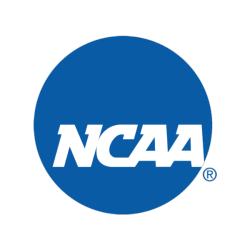Top Class Actions’s website and social media posts use affiliate links. If you make a purchase using such links, we may receive a commission, but it will not result in any additional charges to you. Please review our Affiliate Link Disclosure for more information.

In 2009, lead plaintiffs, notably including former college basketball player Ed O’Bannon Jr., alleged in an antitrust action against the National College Athletics Association that not compensating student-athletes, many of whom do not go on to play professional sports, for uses of their names and likenesses violated various antitrust laws, including the Sherman Act.
In 2014, a district court judge ruled in favor of the class action plaintiffs. The judge’s order banned the NCAA from continuing to impose rules that barred student-athletes from being compensated for use of their names and likenesses. The judge also allowed student-athletes to seek deferred licensing payments from universities and colleges up to a $5,000 per year limit.
The NCAA appealed this district court ruling, and the Ninth Circuit modified it, finding that student-athletes only need to be compensated for the costs of attending college and not beyond. The class action plaintiffs are appealing this ruling by taking it to the Supreme Court.
“Division I football and men’s basketball command billions of dollars each year, with NCAA executives, conference commissioners, coaches and athletic directors earning eye-popping salaries,” the plaintiffs said in their petition to the Supreme Court. “But the athletes — 98 percent of whom will never go pro — cannot receive any payments whatsoever, by fiat.”
According to the class action plaintiffs’ petition to the Supreme Court, the Ninth Circuit’s ruling will severely limit the ability of lower courts to resolve antitrust litigation. The plaintiffs argue that lower courts have discretion under antitrust law, including the Sherman Act, to impose the $5,000 per year compensation requirement.
“This court has made clear that the antitrust statutes vest the district courts with broad remedial power, with no requirement that the courts make the kinds of findings on which the Ninth Circuit insisted,” the plaintiffs said in their petition. “The Ninth Circuit would put an unlawful straitjacket on federal judicial authority and create a standard for antitrust remedies that is at odds with decisions of this court and other circuits.”
The class action plaintiffs also took issue with the Ninth Circuit’s determination on “amateurism.” The plaintiffs argued that the district court had ruled correctly when it found that consumer demand promotes amateurism. The plaintiffs further argued in their petition that the Ninth Circuit had gone too far when it overturned that ruling and found that the NCAA determines amateurism according to its rules or that “not paying student-athletes is precisely what makes them amateurs.”
The plaintiffs are represented by Michael D. Hausfeld, Hilary K. Scherrer, Sathya S. Gosselin, Swathi Bojedla, Michael P. Lehman and Bruce Wecker of Hausfeld LLP and Jonathan Massey of Massey & Gail LLP.
The NCAA Antitrust Class Action Lawsuit is Edward O’Bannon Jr. v. National Collegiate Athletic Association, et al., Case Nos. 14-16601 and 14-17068, in the U.S. Court of Appeals for the Ninth Circuit.
ATTORNEY ADVERTISING
Top Class Actions is a Proud Member of the American Bar Association
LEGAL INFORMATION IS NOT LEGAL ADVICE
Top Class Actions Legal Statement
©2008 – 2024 Top Class Actions® LLC
Various Trademarks held by their respective owners
This website is not intended for viewing or usage by European Union citizens.














